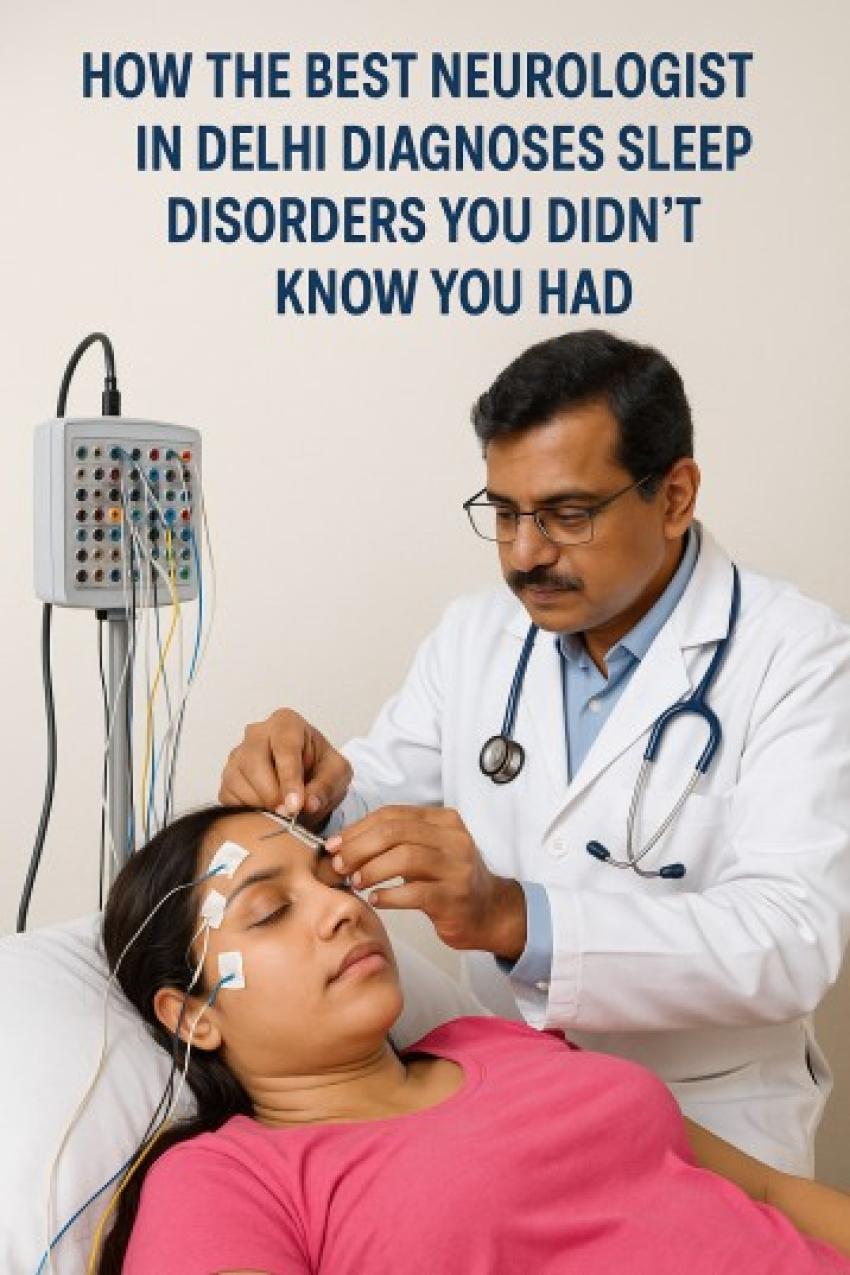
Most people don’t connect their sleep problems to brain function. They think poor sleep comes from stress or a bad mattress. But many sleep disorders start in the brain. That’s why seeing a neurologist can make all the difference.
A neurologist studies how your brain and nerves work. Sleep is controlled by brain signals, so if you can’t sleep well, your brain might be the reason. The best neurologists in Delhi know how to find out what's really going on.
It starts with listening
When you visit a neurologist for sleep issues, the first step is simple. They ask questions. A lot of them.
How long does it take you to fall asleep?
Do you wake up often?
Do you feel tired even after sleeping?
Do you snore?
Has anyone noticed you stop breathing during sleep?
Your answers matter. They help the doctor figure out what kind of sleep disorder you might have. It could be insomnia, sleep apnea, restless legs, or something else.
Then comes observation
Sometimes, the neurologist will ask you to keep a sleep diary. You write down what time you go to bed, when you wake up, how many times you wake during the night, and how you feel in the morning.
This gives a real picture of your sleep over time. It’s more helpful than just guessing or relying on memory.
Using sleep studies to get the facts
If your symptoms suggest a more serious problem, like sleep apnea or narcolepsy, the doctor might recommend a sleep study.
The most common test is called a polysomnography. It’s usually done overnight at a sleep lab. You lie down and sleep while machines track your brain waves, breathing, oxygen, and movements.
Another test is the Multiple Sleep Latency Test (MSLT). This measures how fast you fall asleep during the day. It's often used when doctors suspect narcolepsy or other disorders that cause extreme daytime sleepiness.
These tests show what your brain and body are doing while you sleep. They can uncover problems you didn’t know were there—like pauses in breathing, abnormal leg movements, or disturbed REM sleep.
Ruling out other causes
Not all sleep problems come from sleep disorders. The best neurologists in Delhi will check if another condition is the cause. Sometimes depression, anxiety, or certain medications affect sleep. In other cases, disorders like Parkinson’s disease, epilepsy, or neuropathy play a role.
That’s why a full check-up matters. You don’t want to treat just the symptoms—you want to treat the real issue.
Making a clear plan
Once the neurologist has all the results, they explain what’s going on in plain terms. No guessing. No fluff.
If it’s insomnia, they might suggest CBT-I (cognitive behavioral therapy for insomnia). If it’s sleep apnea, they might recommend a CPAP machine. If restless legs are the issue, they may look at iron levels and suggest the right medication.
The goal is simple: help you sleep better without guesswork.
Why seeing a neurologist helps
A general doctor might give you a sleeping pill. That’s it. A neurologist goes deeper. They understand the connection between the brain and sleep. They find the cause, not just treat the effect.
In Delhi, where stress, late nights, and long work hours are common, sleep problems are easy to ignore. But if they continue, they can lead to memory issues, heart problems, even accidents.
So if you’ve been feeling tired all the time, or your mind feels foggy, or your partner says you stop breathing in sleep—don’t ignore it. A neurologist can help you understand why. And more importantly, what to do next.




